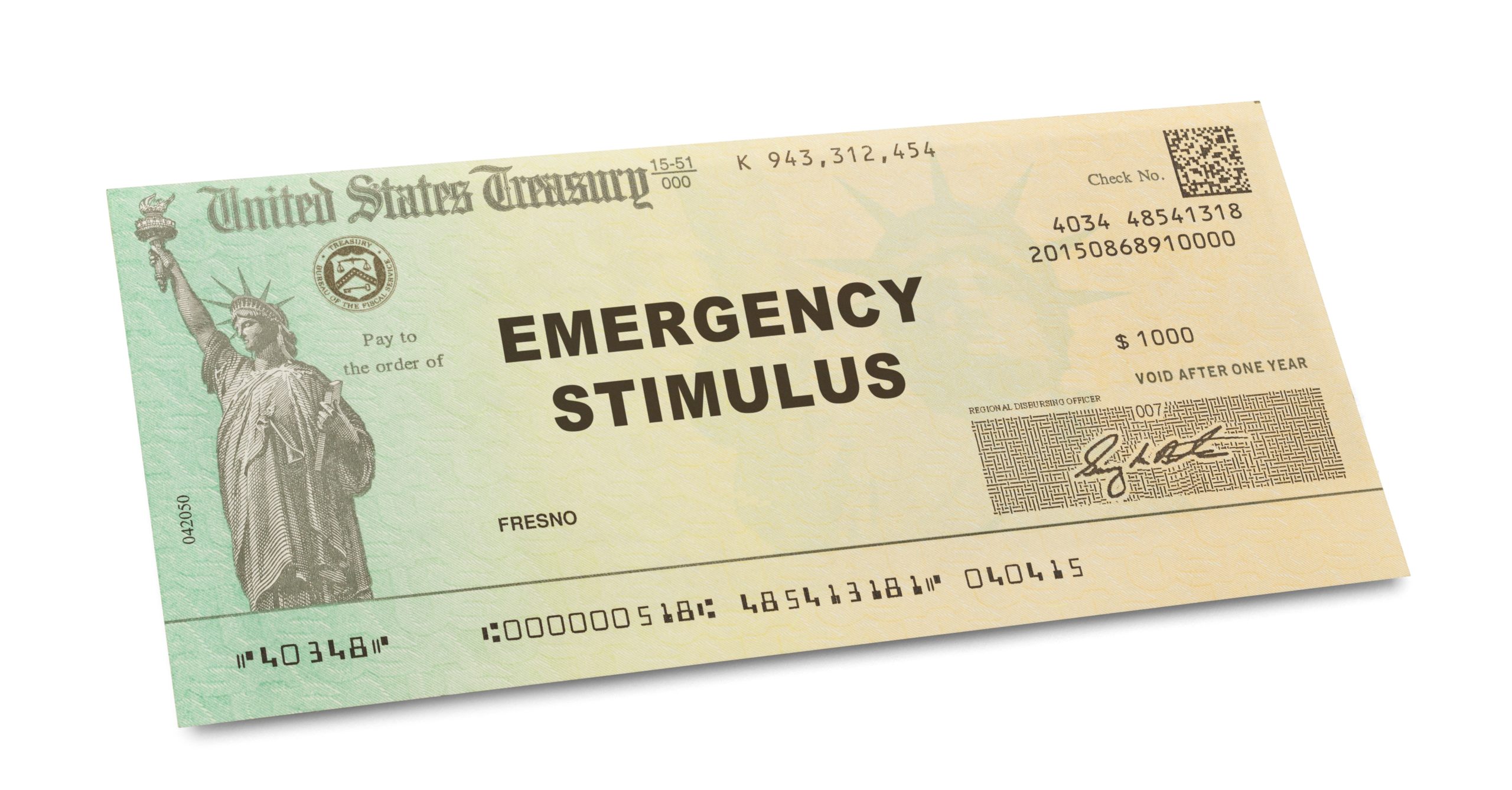Individuals and businesses have been anxiously awaiting further Congressional relief for the continuing economic problems resulting from the COVID-19 pandemic. Late yesterday (December 21, 2020), Congress passed the Consolidated Appropriations Act (the “Appropriations Act”), providing roughly nine hundred billion dollars in additional COVID-19-related relief. The Appropriations Act also provides almost one and a half trillion dollars to fund federal operating budgets through September 2021. The President is expected to sign the Appropriations Act at any time.
Not unexpectedly with major legislation of this type, the Appropriations Act is a monstrous 5,593 pages. Amongst its pandemic-related relief, the Appropriations Act provides a second round of Paycheck Protection Program (“PPP”) loan funds to certain qualified businesses, expands on the previous federal unemployment compensation payments, provides a second round of direct payments to individuals, and authorizes funding for COVID-19 vaccines. In a related provision, the Appropriations Act resurrects the “three martini lunch” business meal deduction, this time at 100%.
A brief summary of these important COVID-19-related provisions follows.
Paycheck Protection Program
The PPP loan program provided potentially forgivable loans to qualified businesses. FOS provided previous guidance on the PPP loan program, which can be found here. The Appropriations Act appropriates funds for a second round of PPP loans.
To be eligible for the new PPP loan, a business must have 300 or less employees and, except for specific exceptions, had gross receipts during the first, second or third quarter that demonstrate not less than a 25 percent reduction from the gross receipts of the entity during the same quarter in 2019 (if the loan application is submitted after December 31, 2020, then a fourth quarter comparison may be used).
These PPP loans are capped at the lesser of the total obtained (1) by multiplying the average total monthly payment for payroll costs incurred or paid by the eligible entity during (a) the 1-year period before the date on which the loan is made or (b) calendar year 2019 by 2.5 or (2) $2,000,000. A business’ eligibility for forgiveness of a PPP loan obtained under the Appropriations Act will generally be the same as under the prior PPP loan program.
Where questions arise regarding qualifications or procedures for, or the effectuation of new PPP loans, businesses should refer to guidelines issued under the initial program and contact your FOS attorney.
In a reversal of Internal Revenue Service decision which will be happily received by many businesses, the Appropriations Act provides that expenses paid with PPP loans are fully deductible. This deduction applies to all PPP loans, regardless of whether the PPP loans were forgiven prior to the date the Appropriations Act is enacted.
Unemployment Compensation
Earlier this year, the Families First Coronavirus Response Act (the “FFCRA”) expanded unemployment benefits, and the Stimulus Act temporarily increased unemployment benefits by up to $600 per week. FOS provided previous guidance on the FFCRA, which can be found here, and the Stimulus Act, which can be found here.
Responding to claims that these prior relief efforts were insufficient, the Appropriations Act revives these supplemental unemployment benefits at $300 per week through March 14, 2021. It also extends the number of weeks an individual may claim benefits through regular state unemployment plus the Pandemic Emergency Unemployment Compensation program or through the Pandemic Unemployment Assistance program from 39 to 50 weeks.
Direct Payments to Individuals
The Stimulus Act provided a tax rebate up to $1,200 per individual and up to $500 per minor child. FOS provided previous guidance on these tax rebates, which can be found here. The Appropriations Act provides a second round of direct payments of $600 (down $1,200) for individuals earning up to $75,000, $1,200 (down from $2,400) for married couples with a combined income of up to $150,000, plus $600 (up from $500) for every minor child. Each payment phases out at a rate of $5 for every $100 in income above each threshold amount.
COVID-19 Vaccinations
The Appropriations Act allocates billions of dollars for the federal and state governments to procure vaccines and treatments for COVID-19. The goal of these funds is to ensure the availability of vaccines and treatments to the greater populace.
As the vaccine becomes widely available, employers should consider whether they should implement a mandatory COVID-19 vaccination policy for their employees. FOS provided previous guidance on COVID-19 vaccinations, which can be found here.
Meal Deductions
The Appropriations Act allows businesses to deduct the full cost of business meals for 2021 and 2022 (i.e. this deduction is not retroactive to the 2020 tax year). Business meals include expenses for food or beverages provided by a restaurant. The Appropriations Act does not define “restaurant” and is unclear on whether the deduction only applies to in-restaurant dining, or also includes to-go orders and/or catering. Additional guidance from the IRS is likely on this resurrected deduction.
Enhanced Charitable Deduction
For 2020, the Stimulus Act allowed an individual who claimed the standard deduction to deduct up to $300 in cash contributions to qualifying charities. FOS provided previous guidance on this above-the-line deduction, which can be found here. The Appropriations Act expands this deduction into 2021 and increases the limit to $600 for married couples.
Conclusion
Th Appropriations Act revives, extends and provides additional needed COVID-19-related relief to individuals and businesses. As with all things COVID, however, the devil is in the details, which will hopefully come with additional governmental guidance from appropriate agencies. In the meantime, if you have any questions regarding the additional COVID-19 relief provided by the Appropriations Act, any other COVID-19-related legislation, guidance or issue, contact FOS.
Be well.





